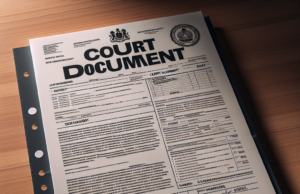Policies Surrounding Grandparent Visitation

Introduction
A grandparent’s relationship with a grandchild can be an essential part of both their lives. However, circumstances such as divorce, estrangement, or death can disrupt the relationship. Thus, policymakers have designed rules that allow grandparents to maintain some form of relationship with their grandchildren when parents are unwilling or unable to facilitate it.
Legal Basis for Grandparent Visitation Policy
Grandparent visitation policy refers to laws created by states that permit grandparents to seek visitation with their grandchildren. Before enacting these laws, policymakers question the boundaries of parental authority and the grandparent-grandchild relationship’s significance, reachability, and stability. Nonetheless, these policies respect parents’ rights to raise their children and grandparents’ rights to maintain relationships with their grandchildren.
Types of Grandparent Visitation Laws
Each state in the United States has individual grandparent visitation laws. Three primary types of statutes govern the relationship between grandparents and grandchildren:
1) complete denial of grandparent visitation,
2) permissive visitation, and
3) presumptive visitation.
Complete Denial of Grandparent Visitation
Some states prohibit grandparents from seeking visitation with their grandchildren against the parents’ ultimate authority. These laws dispute that the Constitution affords parents the right to raise their children and make decisions about who can visit them.
Permissive Visitation
Several states allow grandparents to request visitation with their grandchildren, considering the parents’ preferences, the child’s best interests, and the history of the relationship between the grandparent and grandchild.
Presumptive Visitation
Other states assume that a grandparent has a right to visitation if the grandchild’s parent or parents are unmarried, or one of them dies, divorces, or becomes separated or inactive military duty. These laws protect the grandparent-child relationship despite the change in the child’s life.
Parameters for Grandparent Visitation
A judge who enforces grandparent visitation policy sets guidelines regarding the following:
1. Grandparent’s right to the visitation2. Frequency of visitation
3. Reason for the visitation
4. Location of the visitation
5. Duration of visitation
6. Changes in the visitation
Conclusion
Grandparents cherish the relationships they have with their grandchildren, and policymakers recognize the value of the grandparent-grandchild bond. However, the ultimate determination on whether to award visitation rights to grandparents should be under state law. Applying visitation laws would ensure that grandparents’ rights to visit their grandchildren are protected while upholding parents’ rights to raise and make decisions that affect their children.
There are many states that allow for grandparents’ visitation rights to be taken advantage of by grandparents who need legal help to see their grandchildren.
However, in 2000, the Supreme Court ruled grandparents’ visitation is unconstitutional since parents should have control over their children’s lives and who they see or do not see.
Even though grandparents’ visitation rights exist in some states, the states are looking into their existing policies are looking into them to see if they are in fact constitutional.
While states like California, Florida, and Ohio have decided that their grandparent’s visitation rights are unconstitutional, other states like Mississippi and Arizona still allow grandparents’ visitation.
However, the grandparents do have to prove that there are being completely denied of their grandparent’s visitation when petitioning the court.
There are other states that are quicker to allow grandparents visitation rights to be fought for and won just as there are states that do not allow the parent’s wishes to be overridden under any circumstances unless the parents are determined to be unfit to raise a child.
It is generally agreed that grandparents should study the grandparent’s visitation rights in their state since grandparents’ visitation rights vary so drastically depending on the state.
The first step that grandparents should always take is discussing the situation with the child’s parents. Sometimes, an agreement can be worked out without involving the courts. There are counselors and mediators available to help to try to resolve disputes involving grandparents’ visitation rights.
If a counselor can be used to speak with the parents of the child and the grandparents regarding their grandparent’s visitation wishes, then involving the court is unnecessary.
If there is still no resolution and the grandparents find they have to go to court to fight for their grandparent’s visitation rights, then they must prove in court they have a close and long-lasting relationship with their grandchildren.
It must be proven that is in the child’s best interest for a couple to try to exercise their grandparent’s visitation rights. Sending things like cards and gifts while waiting to go to court can be a good form of proof that there is a genuine desire to maintain contact with the grandchildren.
When a couple is not allowed contact with their grandchildren, there may be hurt feelings on behalf of every party involved. If solving the problem through mediators or counselors does not work, it may be necessary to petition the courts so that a couple can use their grandparent’s visitation rights.
Finding out the state laws on the subject of grandparents’ visitation policies can help couples understand the process they will be dealing with and what options are open to them.













